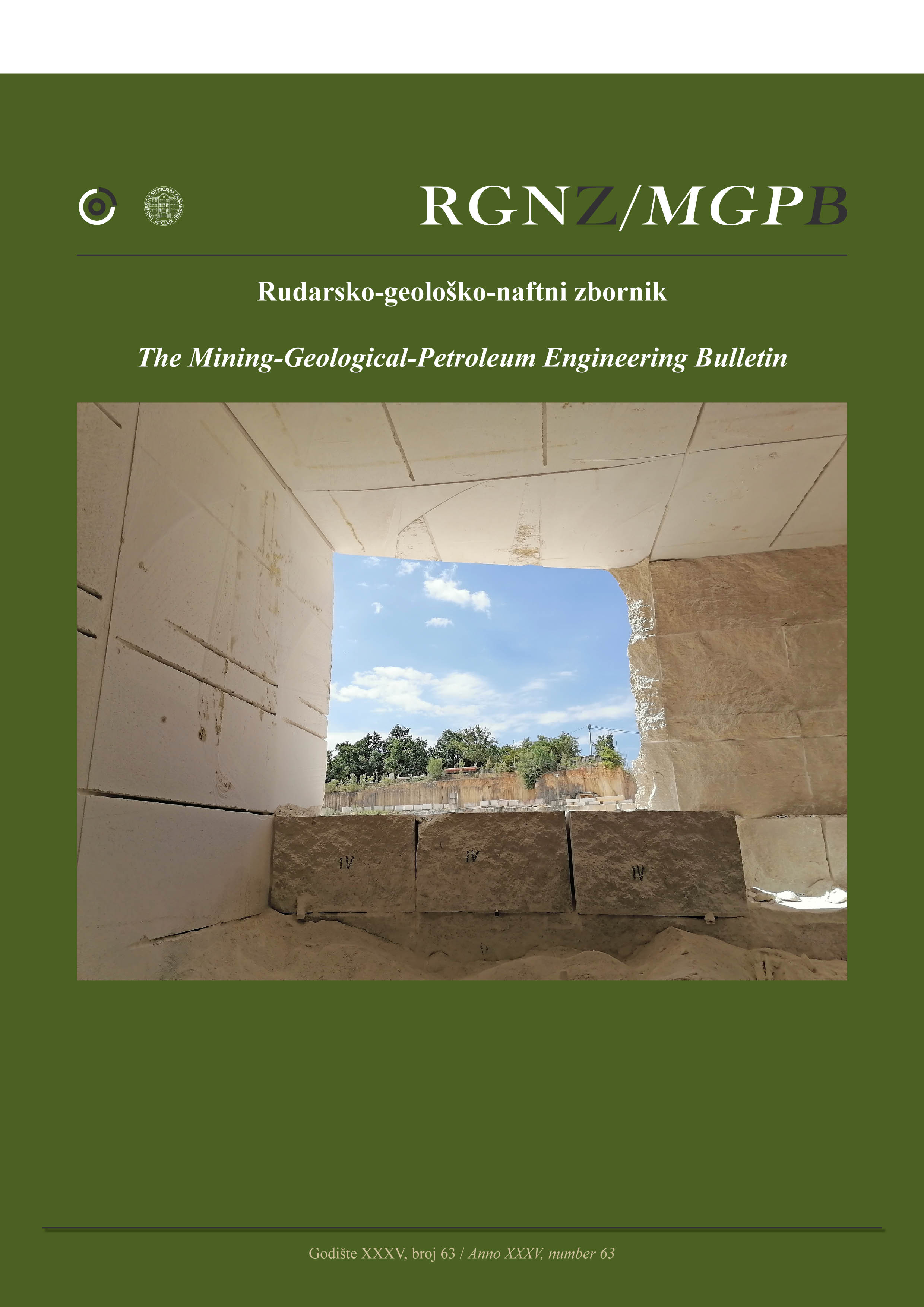The influence of mandarin peel powder on filtration properties and temperature stability of water-based drilling mud
DOI:
https://doi.org/10.17794/rgn.2023.2.3Keywords:
Mandarin peel powder; mud; filtration; hot roll processAbstract
The growing energy demand in the world, as well as the current geopolitical situation, require countries to additional investments in the exploration and production of hydrocarbons from their own sources. This means that companies must develop new fields which have remained undeveloped until now mostly because extremely harsh environment where they are located (deep sea, high temperature, high pressure, heavy oils, etc.). The development of these new fields requires the development and adoption of new technology, among other things, and the development of a temperature-stable drilling fluid system able to fulfil all tasks according to the new technical challenges. Except for the technological challenges, there are also growing concerns related to the influence of the drilling operation on the environment. All of the above encourage the industry to develop new, inexpensive, and environmentally friendly additives which will be able to satisfy all technical and technological requirements and challenges of modern drilling. In the last few years, there has been a growing trend of laboratory research that includes different types of biodegradable waste as a potential additive that can achieve useful properties in mud. In this paper, the influence of mandarin peel powder on the filtration properties of mud after the aging process at elevated temperatures is examined. This eco-friendly additive was added to water-based muds in concentrations of 1% and 2% by volume of water. Laboratory research have shown stable filtration properties of the water-based mud containing mandarin peel powder even after exposing the mud to temperatures higher than 130 °C.
Downloads
Published
How to Cite
Issue
Section
License
Copyright (c) 2023 Borivoje Pašić, Igor Medved, Petar Mijić

This work is licensed under a Creative Commons Attribution 4.0 International License.
Creative Commons-BY
Authors who publish with this journal agree to the following terms:
In agreeing this form, you certify that:
- You read the ethical codex of the RGN zbornik available at journal web.
- You submitted work is your original work, and has not previously been published and does not include any form of plagiarism.
- You own copyright in the submitted work, and are therefore permitted to assign the licence to publish to RGN zbornik.
- Your submitted work contains no violation of any existing copyright or other third party right or any material of an obscene, libellous or otherwise unlawful nature.
- You have obtained permission for and acknowledged the source of any illustrations, diagrams or other material included in the work of which you are not the copyright owner.
- You have taken due care to ensure the accuracy of the work, and that, to the best of your knowledge, there are no false statements made within it.
- All co-authors of this submitted work are aware of, and in agreement with, the terms of this licence and that the submitted manuscript has been approved by these authors.
Publication licence
You retain copyright in your submitted work, according to journal license policy (CC-BY). By signing this form you agree that RGN zbornik may publish it under the publication licence. In summary the licence allows the following:
Anyone is free:
- To copy, distribute, display, and perform the work.
- To make derivative works.
Under the following conditions:
- The original author must always be given credit.
- The work may not be used for commercial purposes.
- If the work is altered, transformed, or built upon, the resulting work may only be distributed under a licence identical to this one.
Exceptions to the licence
In addition to publishing the work printed under the above licence, RGN zbornik will also enable the work to be visible online.
The journal editorial can change the licence rules anytime but it cannot retroactively restrict author(s) rights.


